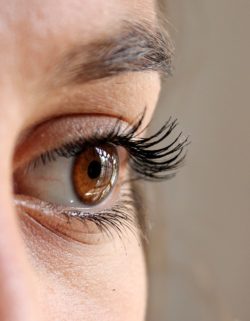The frequent “scope of practice’’ bills in the Georgia General Assembly typically cause commotion within the medical industry, pitting health care professional groups against one another.
A recent example is legislation to let dental hygienists practice in nursing homes, school clinics and safety-net settings without a dentist being present.

In the past, the idea was fiercely opposed by many dentists and the Georgia Dental Association, which kept it from becoming law, but a compromise was reached recently on this year’s bill, and it is likely to pass.
The latest furor about medical practice has erupted over legislation to allow optometrists — who examine the eye, test vision and prescribe corrective treatment but are not physicians — to administer drug injections into patients’ eyelids. Ophthalmologists, who are physicians specializing in the eye, are furiously opposed to this, as is the Medical Association of Georgia, a leading physician organization.
Senate Bill 221, though, was approved by the Senate Health and Human Services Committee on Thursday.
A similar bill failed to clear a House committee recently. But the same panel, the House Health and Human Services Committee, in an unusual move, is scheduled to hear another version of the legislation Friday.

The Senate proposal’s main sponsor, Sen. Renee Unterman (R-Buford), who chairs the chamber’s health committee, said the optometrist bill would improve access to care for patients, especially in underserved areas.
John Whitlow, a LaGrange optometrist, told the Senate panel that 15 other states allow optometrists to do these injections.
“We would like to be able to treat patients to the best of our ability,’’ Whitlow said. The injection, he added, “is not going into the globe of the eye.’’
An inflammation can be treated with eye drops, but if therapy doesn’t work, the patient may need an injection, said Ben Casella, president of the Georgia Optometric Association.

But Dr. Brian Kim, a Dalton ophthalmologist, said complications from an injection can lead to problems that require surgery.
Under the Senate bill that was approved, optometrists must train for 30 hours on the technique under the supervision of an ophthalmologist.
Kim said 30 hours of training “is grossly insufficient’’ to learn to how to do these procedures.
“We all agree that the paramount issue is safety,’’ he said. “There are very rare instances where you need an injection around an eye.”
Injections around the eye can lead to complications that include serious bleeding and infections, and accidental puncture of the eye, according to Kim.
Dr. Baker Hubbard, an ophthalmologist with Emory Healthcare, also said the training required under the bill would be inadequate to ensure patient safety.
Sen. Unterman, a nurse with a strong interest in access-to-care issues, said the eyelid injections are typically used for inflammation, and that most eye care practices have both ophthalmologists and optometrists.
For complex cases, an optometrist is going to refer the patient to an ophthalmologist, she told GHN.

